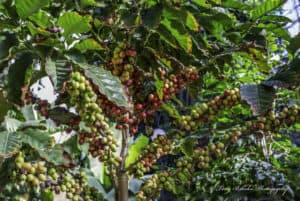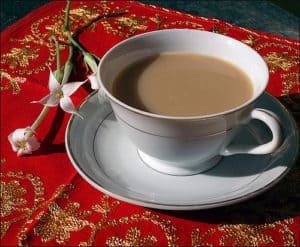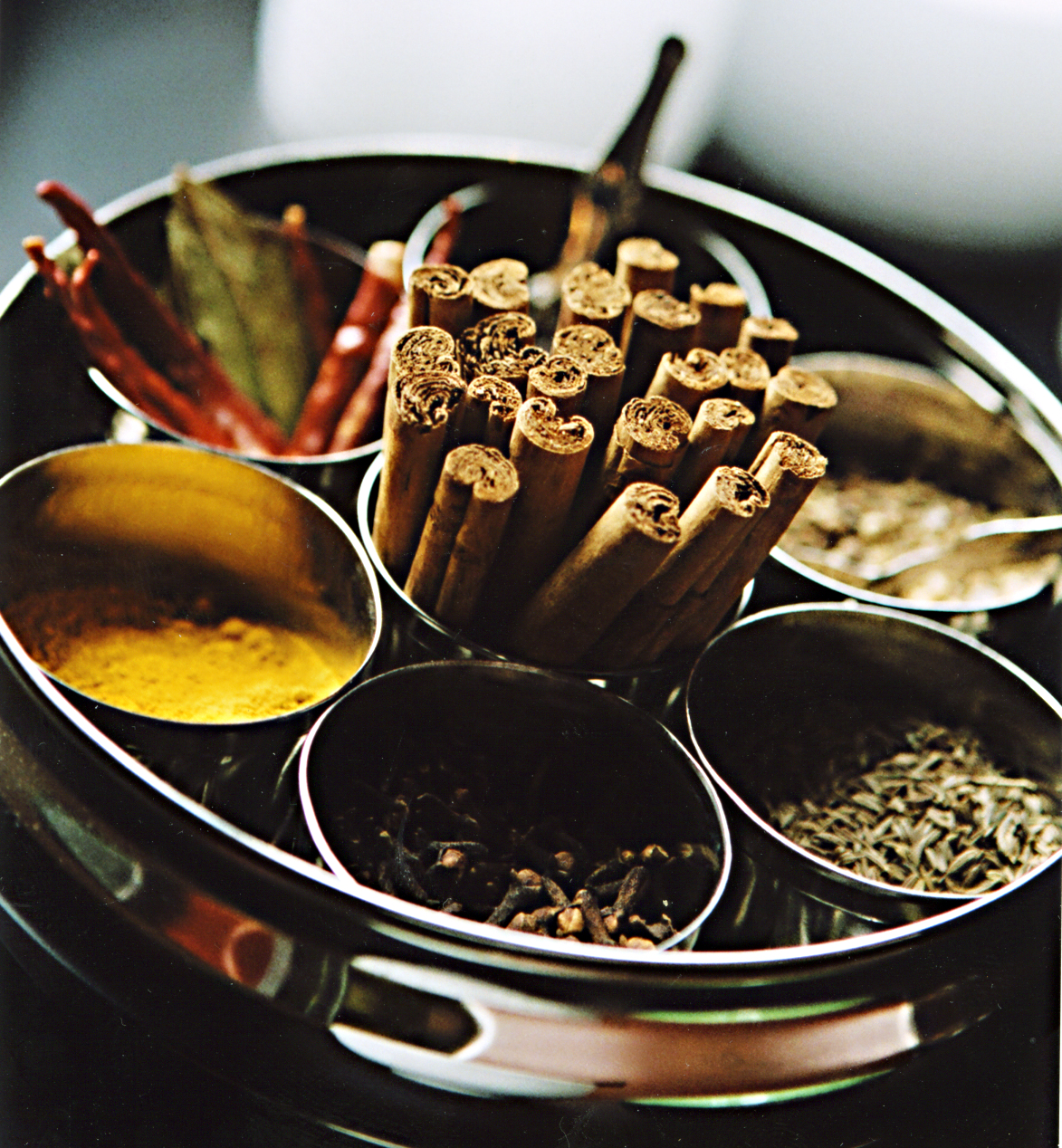The greatest question facing modern humanity may be this: coffee or tea? But tea is a hugely diverse and varied beverage, so I decided to go a little narrower for this investigation and focus on that happy medium between the two camps. So in the battle between coffee and chai, which is better for you? Which is more popular? How are they made? If you’ve ever wanted to know the answer to any of these questions, read on!
Coffee

Coffee begins its life as a seed. That seed can be planted to make a new coffee plant, which takes three to four years to mature and begin producing more seeds. Coffee comes in two different strains: Arabica and Canephora. Arabica is the strain typically preferred as Canephora has a bitterer taste, but Canephora has almost twice the amount of caffeine as Arabica, and is often mixed in with lower-quality commercial brands. Both strains grow at warm latitudes between the tropics of Cancer and Capricorn:

(R: Canephora, A: Arabica, M: Both)
Once the coffee cherries are mature and turn a deep red, they can be picked for the next step in the coffee making process. They can either be dry-harvested, where the cherries are spread and left to dry in the sun, where they are raked and shifted until they dry to 11% moisture. Or they can be passed through a pulping machine via the wet method, which separates the outer shell from the bean, leaving only a small film around the bean. The wet beans are then stored in fermentation barrels until they are completely separated from the film. Then they must be dried to the same point as their sun-dried counterparts. Next the coffee is milled, polished, sorted, and checked for defective beans. Once the quality has been assured, they are transported (still green) to their destinations.
Roasting the coffee turns the green seeds into the brown beans we know and love. The roasting process releases the aroma and flavor, and by grinding the beans and flushing water through the grounds, we make coffee!
Alright, so now we know where coffee comes from. But how bad is it for us? You may be surprised to learn that good old black coffee actually has some significant health benefits! Keep in mind that these benefits diminish the more sugar, creamer, milk, or flavorings you add (looking at you Starbucks).
1. Energy Boost
Because coffee contains caffeine, it stimulates energy and brain function. It improves memory, mood, and reaction times. Did you know that caffeine is actually blocking the chemical that makes you feel tired? It doesn’t actually wake you up, so if you’re already tired, it won’t help much. Drink that coffee proactively!
2. Fat Burner
Caffeine also boosts the metabolic rate, which helps to burn fat. Caffeine is found in almost every diet pill on the market, and now you know why.
3. Nutrients
Coffee contains: Riboflavin (Vitamin B2), Pantothenic Acid (Vitamin B5), Manganese and Potassium, and Magnesium and Niacin (B3), all of which are essential to a well-rounded healthy diet.
4. Disease Fighter
Coffee has been linked to reduced risk of: Parkinson’s Disease, Type II Diabetes, Alzheimers, Dementia, and Liver Disease.
So next time someone asks you if you’re drinking another cup of coffee, whip out your coffee knowledge and have yourself another cup.
Chai

Chai tea refers to a type of tea that originated in India. It is typically a heavy black tea spiced with allspice, cinnamon, vanilla, ginger, cloves, pepper, or other varieties based on region. It is usually mixed with milk and a sweetener. The spices can be boiled directly with the tea and strained, or they can be steeped in tea bags together.

Chai also has some pretty exciting health benefits.
1. Antioxidants
The black tea in chai is a powerful antioxidant that boosts good cholesterol and has both anti-viral and anti-cancer properties. Ginger, fennel, and star anise also have antioxidant properties, so you get a triple dose by drinking chai.
2. Immune Booster
The cardamom, ginger, and cinnamon in chai helps prop up your immune system, and aids in digestion. It also helps improve circulation and fights respiratory infections.
3. Fat Buster
Black Pepper is a substance that improves metabolic function, which helps your body burn more fat.
As far as popularity goes, in India chai has been more popular than coffee for centuries. It is gaining ground in the West as well, and you’d be hard pressed to find a coffee shop that doesn’t offer at least one chai beverage. But for now, it’s clear that coffee is the current king of the West.


